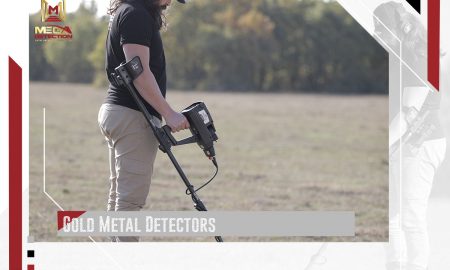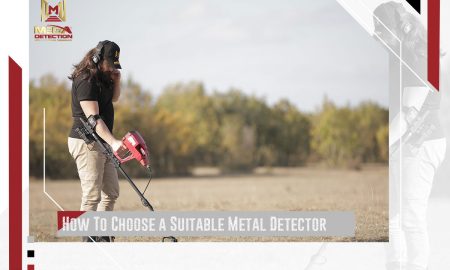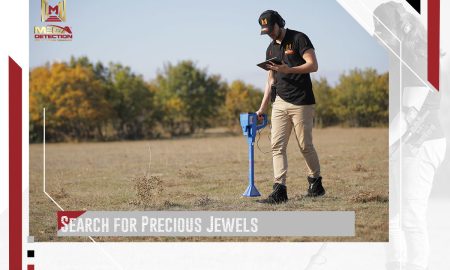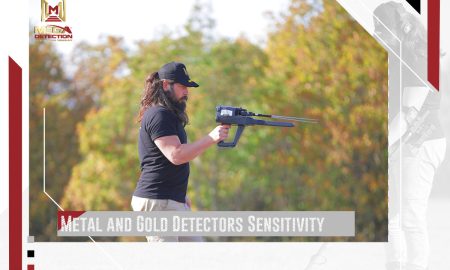Tips for Underwater Metal Detecting
Often times, underwater is where the best treasures are found – just ask any pirate! Thousands of people lose items in bodies of water every day because those areas are not as hunted as places on dry land, your chances of finding valuables are far greater when you hunt in the water. If you haven’t tried using an underwater metal detector yet, you should. Here are some tips to help you get started.
Choose the Right Metal Detector
This decision should be based on the type of water that you want to search – freshwater or saltwater.
If you are going to hunt freshwater lakes, rivers, or other bodies of water, you should use a very low frequency (VLF) machine . It has great sensitivity and will detect even small or thin targets like bracelets and rings.
For saltwater, you will want to use a pulse induction (PI) detector. They are not as affected by wet sand and ground mineralization. However, they are not as sensitive as VLF detectors so you may find yourself spending more time searching.
Choose the Right Accessories
Make sure that you have waterproof headphones, which sometimes come with a metal detector. They will help cut out external noise and let you focus on deep targets. Additionally, you will need a carry bag for transporting your detector, a trowel, and at least one sand scoop. Having a sand scoop will save you a lot of time.
Use the Right Settings
Adjust your settings for underwater hunting based on how far underwater you plan to search and what type of targets you are looking for. To get the right frequency, test your detector on the kind of targets you are looking for on land.
Use the Right Technique
How you hunt with an underwater metal detector is important. Work in slow, consistent motions. You may want to come up with a path to follow, covering it exhaustively before heading to the next area.
Search the Right Areas
When you are deciding which areas to hunt, consider the places that have the most traffic. The more people who have visited the area, the greater your chances of finding lost valuables. Additionally, plan your time so that you are hunting in the daytime. It’s not easy to hunt and separate trash from the treasure in the dark.
Time Things Right
Successfully using an underwater metal detector is almost always dependent on Mother Nature, so it’s important that you understand it. When you are beginning to search beaches, make sure that it is a little before low tide. This will give you the best results for finding targets in the deeper areas of the ocean.
Use the currents to lead you to high potential sand. Search areas where you see water movements because a lot of sand will be carried there by the current. Keep in mind that the ocean movements often carry items that are about the weight and deposits them together in sand pockets. That means that if you come across a few coins, you should keep searching in the same area.
Like any other metal detecting, underwater hunting takes some practice. But when you follow the tips above, you will have a great start to finding underwater treasures.
Finding Shallow Water Treasure While Metal Detecting
Shallow water metal detecting may be one of the most exciting ways to hunt. You are more likely to find valuable targets – like gold rings, coins, and other jewelry – than in most other locations.
It’s really easy to loose change out of your pocket when you’re stripping down to your swimsuit, and fingers that are covered in sunscreen are easy for rings to slip off of, often in the water. That makes the shallow water of the shoreline the perfect place to hunt. And an extra advantage of shallow water metal detecting is that there will be far less trash for you to worry about wasting time on.
Shallow water hunting, for the purposes of this post, is hunting from the high-water mark to about waist-deep. The high-water mark is the level that the seawater reaches during high-tide. You will obviously have to have a metal detector that is submersible up to several feet, and you will need a sturdy long-handled scoop. Depending on the time of year and location you are hunting, you may only need a swimsuit or waders, or in colder climates, you’ll need a wet suit.
Shallow Water Metal Detecting Techniques
Using your metal detector in shallow water is a lot like beach detecting. Because the surf is moving over your feet, it’s important that you quickly mark any target that is located. The simplest way to accomplish this is to firmly plant one foot just behind the target and leave it there until the target is dug up.
Once you’ve marked the target area with your foot, place your scoop in front of your foot that is marking the spot and get a deep scoop of sand. Without dumping or sifting the sand in the scoop, check the hole again with your detector. If the target is still there, dump your scoop and get another scoopful of sand.
If you no longer detect the target in the hole, then hopefully it’s in your scoop. Because of the nature of the moving water, you may have to scoop two or three times. Just make sure to re-check the hole every time.
Work with the Tide
When you are working in shallow water, you have to be aware of the tide. You’ll want to start your hunting at least two hours before low tide. Then you are able to search as the tide is going out and until it turns and forces you out of your search area. Often, the best areas for finding targets are in slightly deeper water. When the tide is low, you are able to search for areas where people swim during high-tide.
Ocean Versus Small Bodies of Water
The beaches of oceans are much different than the beaches of lakes or large ponds. Ocean beaches are in constant movement – especially following storms. That means that you may find coins and jewelry that have been dropped recently, but it’s more likely that you will find items that have been lost somewhere else and moved and buried due to the force of the surf. On the beaches of ponds and lakes there isn’t much movement, so items will typically stay very close to where they are dropped.
On lake beaches, look for areas where people enter the water, or wherever they might gather. Areas that have higher traffic will have more finds.












Leave a Reply